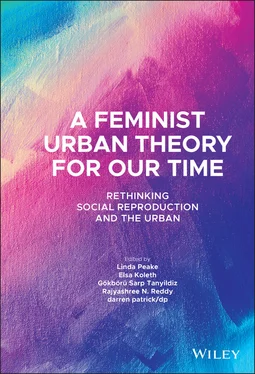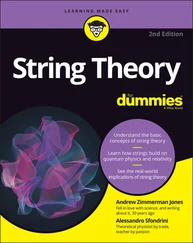102 Piketty, T. (2015). Capital, inequality and justice: Reflections on capital in the twenty-first century. Basic Income Studies 10 (1): 141–156.
103 Pratt, G. (2018). One hand clapping: Notes towards a methodology for debating planetary urbanization. Environment and Planning D: Society and Space 36 (3): 563–569.
104 Puar, J.K. ed. (2012). Precarity talk: A virtual roundtable with Lauren Berlant, Judith Butler, Bojana Cvejić, Isabell Lorey, Jasbir Puar, and Ana Vujanović. TDR: The Drama Review 56 (4): 163–177. https://muse.jhu.edu/article/491900
105 Rendell, J., Penner, B., and Borden, I. eds. (2000). Gender Space Architecture: An Interdisciplinary Introduction. London: Routledge.
106 Robinson, J. (2011). Cities in a world of cities: The comparative gesture. International Journal of Urban and Regional Research 35 (1): 1–23.
107 Roy, A. (2009). The 21st-century metropolis: New geographies of theory. Regional Studies: The Futures of the City Region 43 (6): 819–830.
108 Roy, A. (2016a). Who’s afraid of postcolonial theory? International Journal of Urban and Regional Research 40 (1): 200–209.
109 Roy, A. (2016b). What is urban about critical urban theory? Urban Geography 37 (6): 810–823.
110 Ruddick, S. (2015). Situating the Anthropocene: Planetary urbanization and the anthropological machine. Urban Geography 36 (8): 1113–1130.
111 Ruddick, S. (2017). Rethinking the subject, reimagining worlds. Dialogues in Human Geography 7 (2): 119–139.
112 Ruddick, S., Peake, L., Tanyildiz, G.S. et al. (2018). Planetary urbanization: An urban theory for our time? Environment and Planning D: Society and Space 36 (3): 387–404.
113 Schindler, S. (2017). Towards a paradigm of Southern urbanism. Cities 21 (1): 47–64.
114 Simone, A.M. (2004). People as infrastructure: Intersecting fragments in Johannesburg. Public Culture 16 (3): 407–429.
115 Simone, A.M. (2009). City Life from Jakarta to Dakar: Movements at the Crossroads. London: Routledge.
116 Spain, D. (2002). What happened to gender relations on the way from Chicago to Los Angeles? City and Community 2 (2): 155–167.
117 Tadiar, N.X. (2013). Life-times of disposability within global neoliberalism. Social Text 115, 31 (2): 19–48.
118 Tanyildiz, G.S. (2021). A Communism Made to the Measure of the World: A Phenomenology of the Diremption of Life and Capitalism. Doctoral Dissertation. York University.
119 Tsing, A. (2015). The Mushroom at the End of the World. Princeton, NJ and Oxford: Princeton University Press.
120 Tuck, E. and Yang, K.W. (2012). Decolonization is not a metaphor. Decolonization: Indigeneity, Education & Society 1 (1): 1–40.
121 UN-Habitat (2016). Urbanization and Development: Emerging Futures. Nairobi: United Nations Human Settlements Programme.
122 Vidal, E.M., Tjaden, J.D., and Laczko, F. (2018). Global Migration Indicators: Insights from the Global Migration Data Portal. Berlin: Global Migration Data Analysis Centre.
123 Wade, R. (2009). Steering out of the crisis. Economic and Political Weekly 44 (13): 39–46.
124 Ward, K. (2010). Towards a relational comparative approach to the study of cities. Progress in Human Geography 34 (4): 471–487.
125 Ware, V. (1992). Moments of danger: Race, gender, and memories of empire. History and Theory 31 (4): 116–137.
126 Wekerle, G.R. (1980). Review essay: Women in the urban environment. Signs: Journal of Women in Culture and Society 5 (3): S188–S214.
127 Winders, J. and Smith, B.E. (2019). Social reproduction and capitalist production: A genealogy of dominant imaginaries. Progress in Human Geography 43 (5): 871–889.
128 Woodman, D. and Cook, J. (2019). The new gendered labour of synchronisation: Temporal labour in the new world of work. Journal of Sociology 55 (4): 762–777.
129 Yeates, N. (2012). Global care chains: A state‐of‐the‐art review and future directions in care transnationalization research. Global Networks 12 (2): 135–154.
130 Yeoh, B. and Huang, S. (2010). Transnational domestic workers and the negotiation of mobility and work practices in Singapore’s home-spaces. Mobilities 5 (2): 219–236.
Конец ознакомительного фрагмента.
Текст предоставлен ООО «ЛитРес».
Прочитайте эту книгу целиком, купив полную легальную версию на ЛитРес.
Безопасно оплатить книгу можно банковской картой Visa, MasterCard, Maestro, со счета мобильного телефона, с платежного терминала, в салоне МТС или Связной, через PayPal, WebMoney, Яндекс.Деньги, QIWI Кошелек, бонусными картами или другим удобным Вам способом.

![Михаил Лермонтов - A Hero of Our Time [New Translation]](/books/27671/mihail-lermontov-a-hero-of-our-time-new-translati-thumb.webp)










